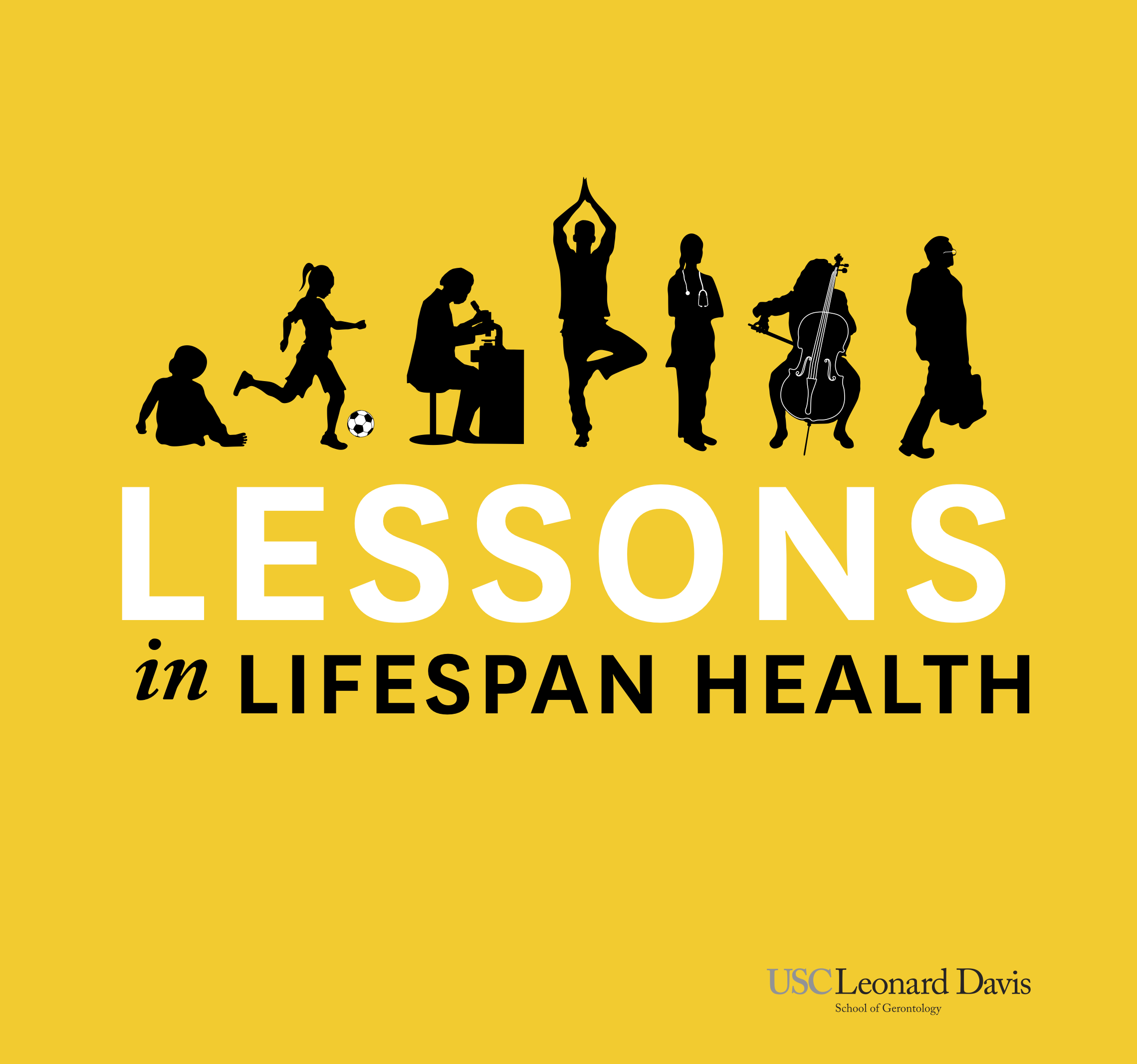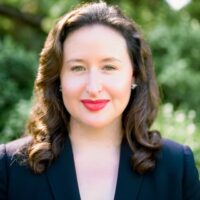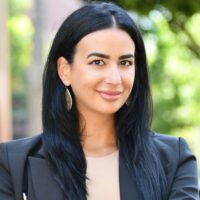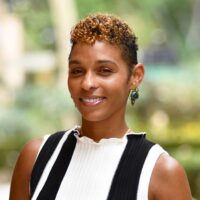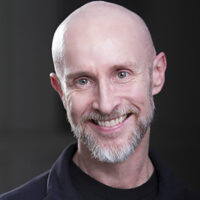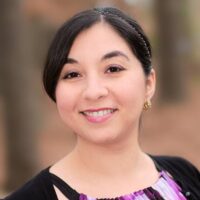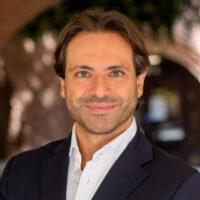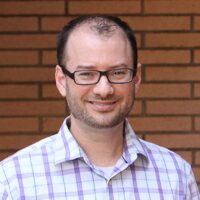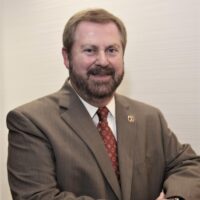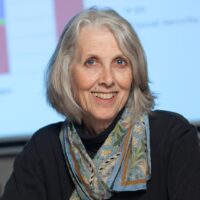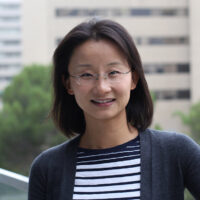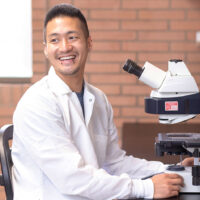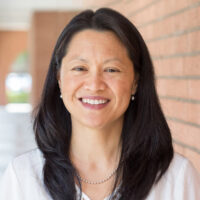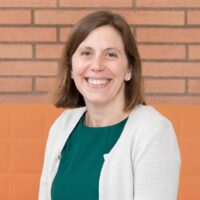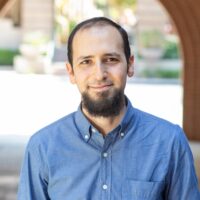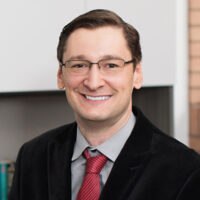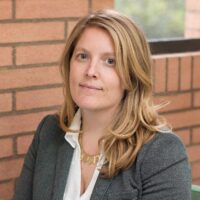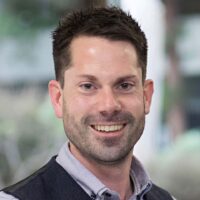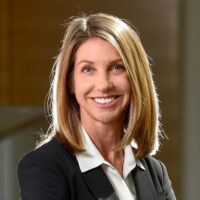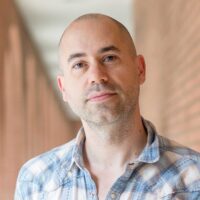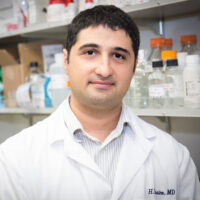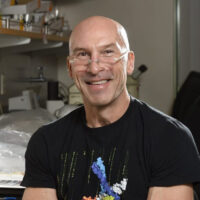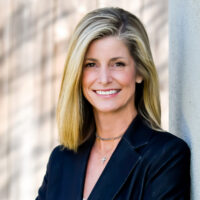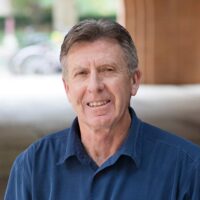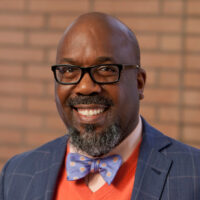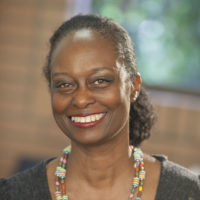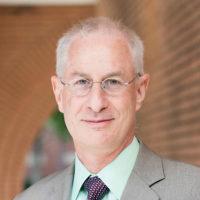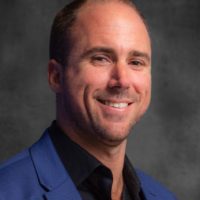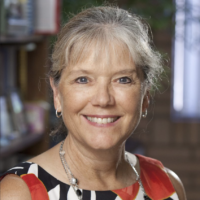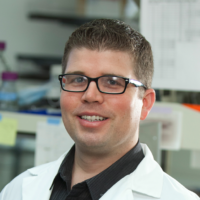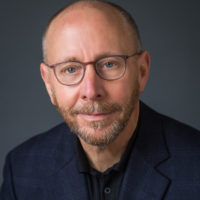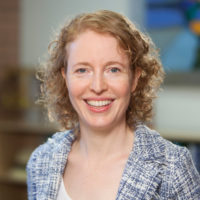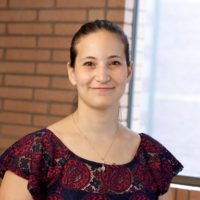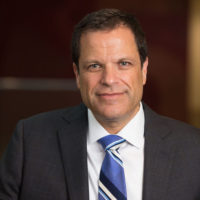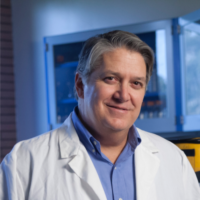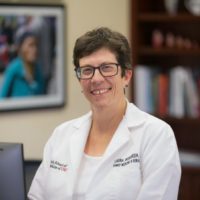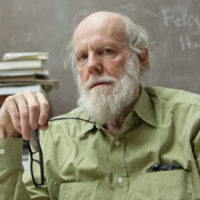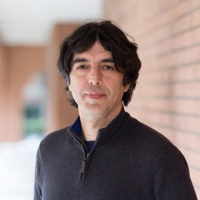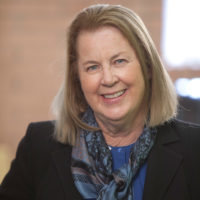From the USC Leonard Davis School of Gerontology, this is Lessons in Lifespan Health, a podcast about the science — and scientists — improving how we live and age.
Lessons in Lifespan Health is supported in part by the Ney Center for Healthspan Science and the Center for Lifespan Health.
Featuring music by Sound of Picture.
Season 5 Episodes
Michelle Keller is an assistant professor of gerontology and the Leonard and Sophie Davis Early Career Chair in Minority Aging at the USC Leonard Davis School. She spoke to us about her research focused on improving patient-clinician communication, medication management, and the identification of dementia in minority older adults. Here are highlights from our conversation.
Francesca Falzarano is an assistant professor of gerontology at the USC Leonard Davis School. Her research is inspired by her personal experience as a caregiver to her parents and explores how to improve the mental health and well-being of family caregivers, including through the use of technology.
Lauren Brown is an assistant professor of gerontology at the USC Leonard Davis School. Her research uses publicly available data to uncover the unique difficulties Black Americans face in maintaining physical and psychological well-being as they age. Her lab both challenges the methods used to study older Black adults and strives to increase diversity in data science research with the goal of increasing the visibility of Black and Brown people via data and storytelling.
Patrick Corbin is an associate professor of practice at the USC Glorya Kaufman School and an internationally renowned dance artist whose career has spanned over 30 years and bridged the worlds of classical ballet, modern and contemporary dance. He recently spoke to us about his work, exploring the positive effects that dance can have on neurology.
Connie Cortes is an assistant professor of gerontology at the USC Leonard Davis School. Her work straddles the fields of neuroscience and exercise medicine, and she recently spoke to us about her research seeking to understand what is behind the beneficial effects of exercise on the brain with the goal of developing what she calls “exercise in a pill” therapies for cognitive decline associated with aging and neurodegenerative diseases.
Roberto Vicinanza, instructional associate professor of gerontology at the USC Leonard Davis School and a specialist in geriatric medicine, joins us for a conversation about healthy aging, including tips on how to keep the body and mind functioning for as long as possible.
Season 4 Episodes
Dion Dickman, associate professor of neuroscience and gerontology, joins George Shannon to discuss how the nervous system processes and stabilizes the transfer of information in healthy brains, aging brains and after injury or disease.
Distinguished Professor Kelvin Davies joins Professor George Shannon to discuss his research on how the body is able to maintain balance under stress and the implications it could have for preventing age-related disease and decline.
Kate Wilber is the Mary Pickford Chair in Gerontology and director of the Secure Old Age Lab at the USC Leonard Davis School. She’s also the co-director of the National Center on Elder Abuse, which is housed at the Keck School of Medicine of USC. She recently spoke to George Shannon about her research, including her work exploring ways to provide long-term care services and supports that allow older adults to be as independent as possible and the challenges and opportunities that technology provides in this area.
Rong Lu is an associate professor of stem cell biology and regenerative medicine, biomedical engineering, medicine, and gerontology at USC. She joins George Shannon to discuss her research into the complex and surprising behavior of individual blood stem cells and what it could mean for treating diseases associated with aging.
Assistant Professor of Gerontology Ryo Sanabria joins Professor George Shannon to discuss their research seeking to understand why stress response pathways break down as we grow older and whether there may be ways to delay that breakdown and potentially promote healthier lifespans.
Research Assistant Professor Thalida Em Arpawong joins Professor George Shannon to discuss her research to better understand how our genes and environments influence how we respond to stress and adversity and impact how we age.
Mireille Jacobson is an associate professor in the USC Leonard Davis School and the co-director of the Aging and Cognition Initiative at the USC Schaeffer Center for Health Policy and Economics, where she’s also a senior fellow. She joins Professor George Shannon to discuss her research using economic insights to better understand decision-making around vaccines, palliative care, Alzheimer’s disease and more.
Assistant Professor of Gerontology Joseph Saenz joins Professor George Shannon to discuss his ongoing work on rural-urban differences in cognitive ability among older adults in Mexico, as well as whether certain personality factors make people resilient to the negative effects of early-life disadvantage.
Assistant Professor of Gerontology Andrei Irimia joins Professor George Shannon to discuss brain imaging and brain health, including his work to determine who is most at risk for Alzheimer’s disease after suffering a concussion or traumatic brain injury.
Season 3 Episodes
Associate Professor of Gerontology and Sociology Jennifer Ailshire joins Professor George Shannon to discuss the impacts of air pollution, global aging and how factors like location and education can influence the way we age.
Instructional Associate Professor of Gerontology Paul Nash joins Professor George Shannon for a conversation on the impacts of ageism, intersectionality and LGBTQ+ issues in aging, and the importance of talking about sexual health with older adults.
Julie Zissimopoulos is an associate professor in the USC Price School of Public Policy and the co-director of the Aging and Cognition Initiative at the USC Schaeffer Center for Health Policy and Economics, where she’s also a senior fellow and the director of two NIA-funded centers that support innovative social science research on dementia. She recently spoke to us about her research using economic insights to better understand the impact of Alzheimer’s disease on individuals, families, caregivers, and society.
Marc Vermulst is an assistant professor of gerontology at the USC Leonard Davis School, who focuses on the role of genetic mutations in human aging and disease. He recently spoke to us about how his research into transcription errors, essentially copying mistakes, aims to strengthen vaccines and delay or prevent diseases.
Hussein Yassine is a professor of medicine at the Keck School of Medicine at USC and is uncovering links between nutrition, genes, and risk for Alzheimer’s disease. He spoke to us about his research on APOE4, omega-3s and inflammation in the brain.
John Tower is a professor of biology and gerontology. He spoke to us about his research on the roles of sex differences and mitochondria in aging.
Kerry Burnight is the chief gerontologist at GrandPad, the creators of an internet-connected tablet designed specifically for seniors. She spoke to us about how the device aims to combat loneliness and abuse and about the sense of purpose that powers her gerontology career.
John Walsh, associate professor of gerontology and vice dean of education at the USC Leonard Davis School joins Professor George Shannon for a conversation on how teachers and students can make the most of online instruction and to discuss how our life experiences can help us meet this challenging moment in time, both in the classroom and outside of it.
Season 2 Episodes
Reggie Tucker-Seeley, the Edward L. Schneider Chair in Gerontology and an assistant professor at the USC Leonard Davis School, is joined by his colleague, Jhumpka Gupta, an associate professor in the global and community health department at George Mason University. The two discuss issues of racism and hate and the implications for health across the life course.
Donna Benton, research associate professor and director of the USC Family Caregiver Support Center, joins Professor George Shannon to discuss the challenges faced by family caregivers during the coronavirus pandemic and how they can be addressed at individual, community, state, and national levels.
Dr. Pinchas Cohen, USC Leonard Davis School dean and a professor of professor of gerontology, medicine and biological sciences joins Chief Communications Officer Orli Belman in a conversation about COVID-19 risk factors and research directions, with a focus on how research focused on delaying aging processes holds promise for improving outcomes for older adults.
Throughout his career, Tyler Evans BS ’02 has been on the front lines of major disease outbreaks around the globe. He was in South Africa at the height of the AIDS crisis and he treated Ebola patients in Sierra Leone. He’s just joined the New York City Emergency Management Department as the chief medical officer for the COVID-19 branch.
Cary Kreutzer, associate professor of gerontology and pediatrics and the director of the USC Leonard Davis School’s master of science degree program in Nutrition Healthspan and Longevity, joins Chief Communications Officer Orli Belman in a conversation about how to eat healthy, shop smart, reduce stress and stay connected through food as we practice social isolation due to the Covid-19 virus.
Sean Curran, the Associate Dean of Research at the USC Leonard Davis School and an Associate Professor of Gerontology and Molecular and Computational Biology, joins Professor Geroge Shannon in a conversation about his research toward generating blueprints that can allow an individual to maximize health over the course of their lifespan. Informed by genetics, he is developing the capacity to predict which diets are ideal for a healthy life and which should be avoided.
Paul Irving, chairman of the Center for the Future of Aging at the Milken Institute and distinguished scholar in residence at the USC Leonard Davis School of Gerontology, joins Professor George Shannon in a conversation that sheds light on the need to prepare for growing older, reasons to resist retiring, the value of volunteering and other opportunities of aging.
Mara Mather, Professor of Gerontology and Psychology at the USC Leonard Davis School of Gerontology, is shedding light on how we learn, what we remember, and where we might find clues to slowing the progression of Alzheimer’s disease.
Bérénice Benayoun, Assistant Professor of Gerontology at the USC Leonard Davis School of Gerontology, is advancing what we know about how cells age, and how they can possibly be returned to a more youthful state, by focusing on areas that have historically been overlooked.
Season 1 Episodes
Dana Goldman, USC Distinguished Professor in public policy, pharmacy, and economics and director of the Schaeffer Center for Health Policy & Economics at the USC Price School of Public Policy, is working to improve health – and reduce spending – by calling for policy changes that reward prevention, innovation and long-term investments in people of all ages.
Christian Pike, Professor of Gerontology at the USC Leonard Davis School of Gerontology, discusses his research on sex differences in Alzheimer’s disease and how they can help inform how we might one day prevent and treat it.
Dr. Laura Mosqueda, Dean and Professor at the Keck School of Medicine of USC, is raising awareness about the issue of elder abuse and shaping how it is addressed in medical schools, clinics and the national conversation.
USC University Professor Caleb Finch is working to understand the relationships between aging, genes and the environment through his studies of ancient mummies and premodern societies.
Inspired by a mentor’s extreme experiments with caloric restriction, USC Leonard Davis School of Gerontology Professor Valter Longo explores how fasting-mimicking diets might help prevent disease, promote healthy aging, and prolong our ability to stay young.
Demographer and USC University Professor Eileen Crimmins researches how and why American lifespans are now falling short of those in other wealthy nations and what the science of biomarkers can tell us about healthy aging.

